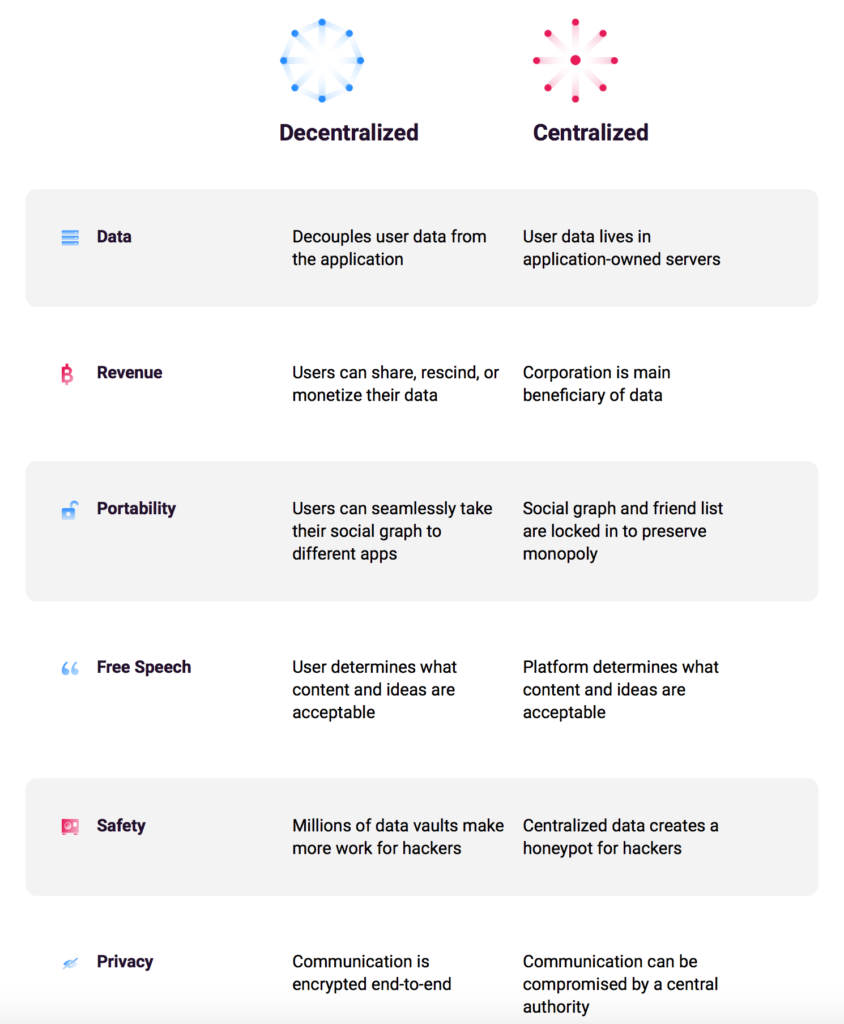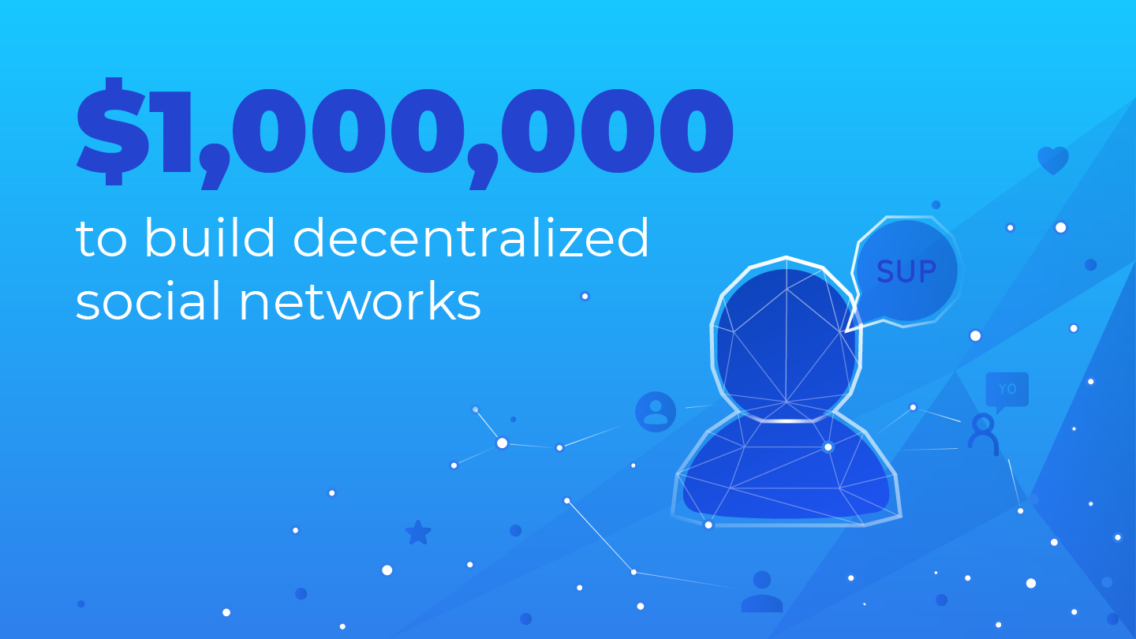UPDATE: The campaign mentioned in this article was folded into the App Mining program where over $3 million in BTC and STX was paid out to app developers. Developers looking for funding for social networking apps (or other decentralized applications that put users first), should review this post on the future of App Mining where over 30M in STX is earmarked for developer support via the Stacks Foundation, check out the Signature Fund, or get in touch via Discord.
No single entity should have unilateral say over how 2 billion people connect and communicate. The current centralized model of social networking has created a stranglehold on our collective consciousness, communication, and friend network. But we’re at an inflection point — a moment where people can reclaim control of the way they network.
We believe the future of social networking looks like a constellation of decentralized applications that preserve digital rights, privacy, and user choice. A network of applications compatible with one another — that no single company owns — built on underlying protocols used for communication and data transmission.
That’s why the Blockstack Public Benefit Corporation is taking a stand and committing $1,000,000 to support social network dapps that rewrite the fundamental basis of how we connect.
Each developer or team that is accepted will receive $100K to build a social network using the Blockstack infrastructure. Teams will have the opportunity to present at future Blockstack Summits, and receive further support in the form of capital or mentorship.
Teams have the autonomy to build different features, or target broad or narrow audiences. They could build online networks for activists in authoritarian countries, or forums for people with a shared illness. Their apps could have completely new features, or take interface cues from Facebook or Twitter. They’ll just have to prove product market fit and show an ability to reach mass adoption.
By building on top of an infrastructure like Blockstack’s, developers will have identity and storage baked into the underlying infrastructure, so they can focus on user experience and not passwords or storage. And since all users will own their identities, data, money, and social graph, they’ll have the freedom to adopt the very best of what these social networks have to offer.

This next iteration of social networking may not look anything like Facebook. But we do know it can democratize the best elements of it, restoring power of choice, mobility, and control to their users.
For developers to get started, check out:
- Blockstack Forum for any questions
- Multiplayer Storage Tutorial
- Documentation for Authentication, Storage, and Encryption
Please visit app.co/mining to learn more about funding your application.
UPDATE: The campaign mentioned in this article was folded into the App Mining program where over $3 million in BTC and STX was paid out to app developers. Developers looking for funding for social networking apps (or other decentralized applications that put users first), should review this post on the future of App Mining where over 30M in STX is earmarked for developer support via the Stacks Foundation, check out the Signature Fund, or get in touch via Discord.
